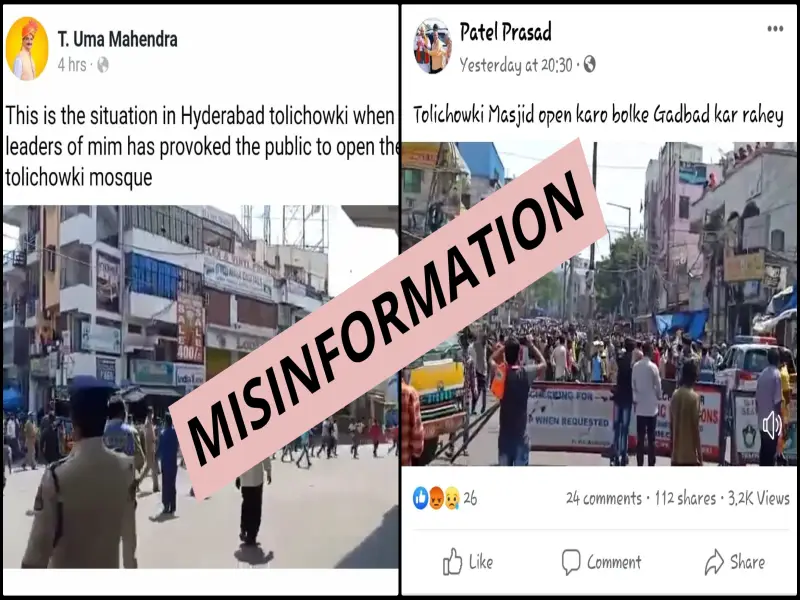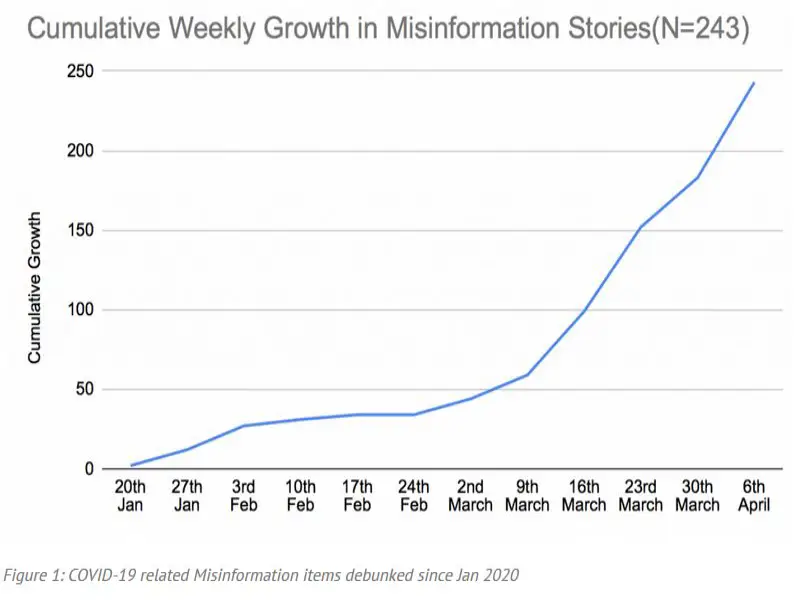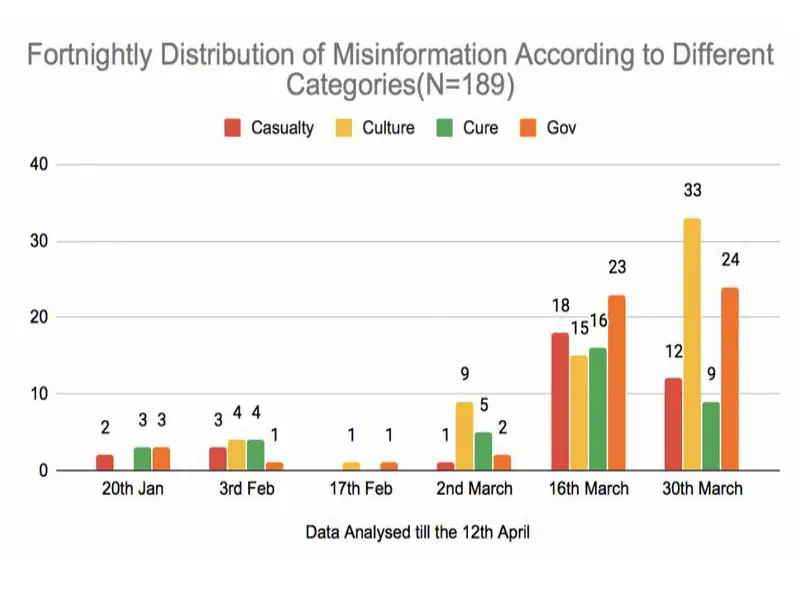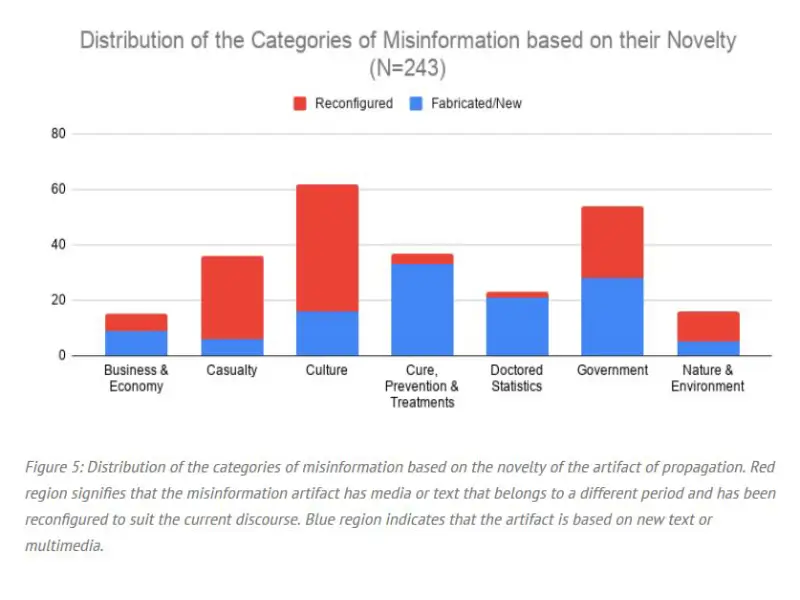Post Markaz, India saw a spike in 'misinformation' around Muslims and COVID : Study
By Amritha Mohan
Hyderabad: Misinformation in the time of Covid-19 pandemic has taken a turn for the worse after the lockdown was announced in India. In fact, a study by four researchers on misinformation in India has found out that fake information has witnessed a spike, with a drastic increase after March 16. Interestingly, majority of the misinformation that was debunked by India’s fact-checking websites involved religious, ethnic and cultural references, usually used to pit one against the other.

‘Culture-related misinformation has Muslim/Islam related component’
The study titled ‘Temporal patterns in Covid-19 misinformation in India’ had sampled 243 cases of misinformation covered by six fact-checking websites in India, from January 23 to April 12, 2020. One of the most relevant findings of the study is that two categories of misinformation have been rising consistently over the said time period: mainly stories around culture and the government (culture, in this context, refers to having a religious / ethnic / social group/popular culture reference). Further, culture-related misinformation has a very significant Muslim/Islam-related component. The study suggests that this is due to a visible increase in stories around Muslims and Covid-19 as well as stories around police brutality.

The researchers stated that while there was a significant China-related component in the earlier stories, religious references rose later, after the Nizamuddin Markaz event held in Delhi.
Wrong information regarding the government include messages that have government announcements and advisories or refer to police, judiciary, political parties. While 62 instances of misinformation came under culture-related misinformation, 54 instances showed government-related misinformation.
Other fake messages which have been spread refer to cures and treatments to Covid-19, and messages relating to deaths, illness of people in the pandemic, including graphic images of suffering.
‘Mainstream media, politicians, government sources also spread misinformation’
The research also pointed out that in several cases, politicians or arms of the government have directly passed along information that has been found to be false. The study also named misinformation spread by Press Information Bureau (PIB), apart from also naming news channels like ANI, TOI Kochi, TV9, Global Times, OPIndia, News18. “A majority of the misinformation in this is from the “culture” category suggesting that mainstream news sources have been particularly complicit in Muslim-baiting,” the study said.

Misinformation on ‘re-appearance’ of animals’ gaining popularity
Interestingly, the study also provided insight on messages related to re-appearance of animals. “One oddly popular thread of misinformation has been around “reappearance” – ranging from messages about animals roaming on the street (again, there have been a small number of actually reported stories of animals out in various small towns and villages) such as herds of deer gathering on the Ooty-Coimbatore road to bizarre misinformation about mermaids appearing as a result of reduced human impact on the environment,” it said.
The study concluded that misinformation in the country is reaching a phase where cultural elements are involved, which are tougher to verify as opposed to scientific facts.
“We are entering a phase in misinformation which is intended to be affective around identity and emotion rather than around instrumental facts that can be scientifically verified. Thus, from presenting fake cures or fake images of pain – which over time get debunked or appear suspicious to viewers, the misinformation has moved to cultural elements that are harder to verify,” it said.
The study was conducted by researchers Syeda Zainab Akbar, Divyanshu Kukreti, Somya Sagarika and Joyojeet Pal.
http://joyojeet.people.si.umich.edu/temporal-patterns-in-covid-19-misinformation-in-india/